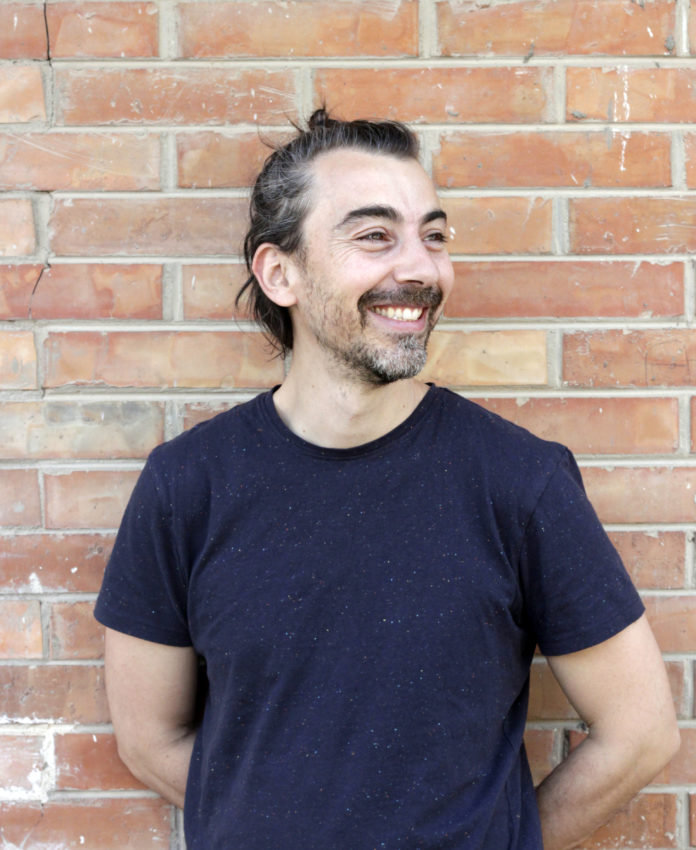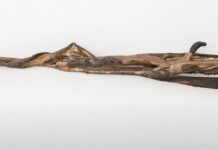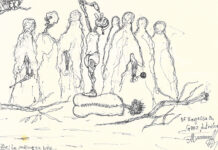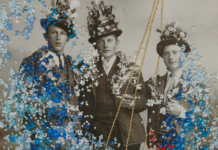
Andrea Paoletti is an architect and designer from Matera in southern Italy. His work is all about creating and activating relationships and communities. In this interview, he tells us about social design processes and how to connect people, things and places.
Social design is a human centered design approach that focuses on social issues. It aims to shape the social fabric of a city, decrease social inequalities and improve the quality of life. You have been working as an architect and designer in this field since 2005, focusing on activating places and communities. What would you say is the essence of your work in social design?
My role is all about creating relationships. This is what I call relational design processes: connecting people with a relational social purpose. The first important thing in social design processes is to listen to people. Design places together where new solutions can be found, define priorities and find new perspectives – all these steps are important to involve the community through the process.
Which methods do you use in this process?
I use a methodology called co-creation or co-design. That means, that people are always involved from the beginning of the process. It allows them to connect, to foster new ideas and to really make them learn by doing things. What I normally do is to create places where people feel accepted, where they can express themselves and use their creativity.
One of these places that you created is Casa Netural in Matera, the first co-working and co-living space in Italy. Can you tell us about what happens there?
Casa Netural is a social place where people are the centre of all the projects. It is open to all people and invites everybody to come together and work on new solutions. We are trying to provide a platform to connect people by doing things. It is a place where we teach, learn and discuss things.
“Things” like for example the acquirement of the public space for the people?
At Casa Netural all projects start through a process that invite people to come together and work together to create a new identity. This is very important to create trust and empathy through the process and also to create something that people are very proud of. We provide tools where people can work with loose material to reconquer the public space for themselves.Private or public spaces really need to fit in a certain way. They need to fit the protagonists and the picture of the community.
This approach of connecting people by working together is also useful for the reactivation of peripheral regions, like for example the village of Grottole in southern Italy. What can you tell us about this project?
Yes. In Grottole we started a process of revitalizing the historical center. We started all the processes by connecting the local community with other people that wanted to come. Regions like Grottole need to develop a new kind of centrality and a new story for themselves. As you can see, all the processes are really about improving the relationships of the people. It is a never-ending process. We know where to start, but we don’t know what the final step will be.
When we talk about the reactivation of rural regions and the acquirement of the public space, it is not only about interconnecting people but also about connecting people and places. Another approach in your work.
Another project in Matera focuses more on creating a new sustainable model for the future. We mapped the green abandoned areas of Matera and matched them with communities that were in need of these spaces to develop their projects. With the project Agroagri we transformed a green area into a public urban park where you can now find vegetable gardens, different event locations and a kinder garden.
Let’s talk about technology and social relationships. In some way, technology has replaced direct social interaction and relations, but at the same time connected people all over the world. Which role does technology play in your work? Technology is only important for us to get more people to participate. Every project has a different scaling system, depending on whether you want to focus on the local community or connect people internationally. For a wider, more international community we need technology, especially social media. Urban gardening projects for example don’t need technology because it’s about local people and the neighborhood.
Andrea Paoletti is an architect and social designer from Matera in the south of Italy with a focus on designing spaces for change, generating and activating communities. He guides, involves and accompanies his clients throughout the design process, taking care of every detail in a meticulous way, managing and coordinating the work with other professionals and responding to budget needs.
www.andpaoletti.it
Casa Netural: www.benetural.com
Wonder Grottole: www.wondergrottole.it
Matera – From the Stone Age into Cyberspace, Documentary:bsx.at/en/matera-documentary/











